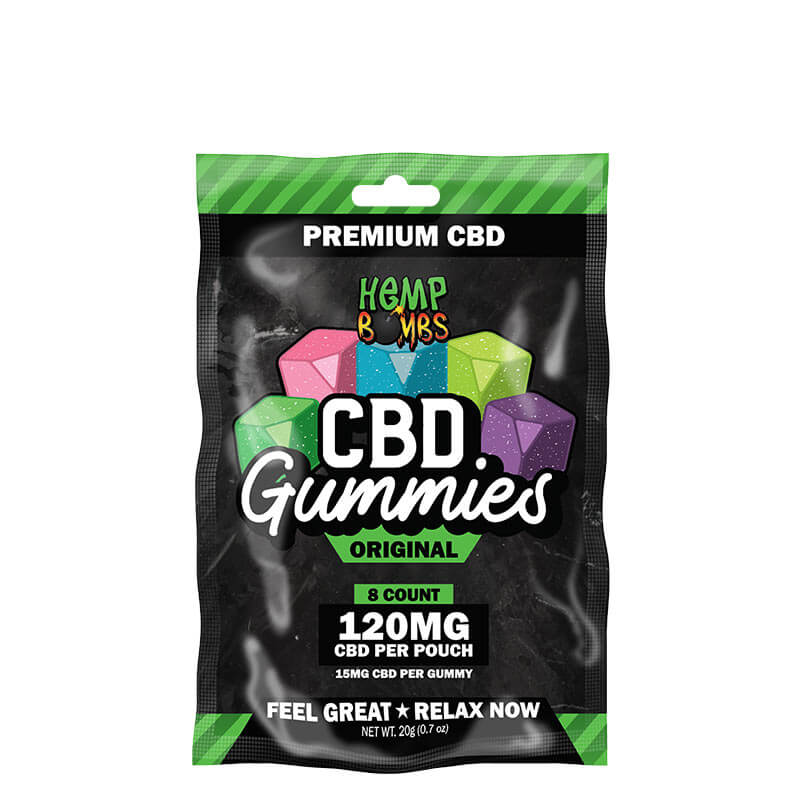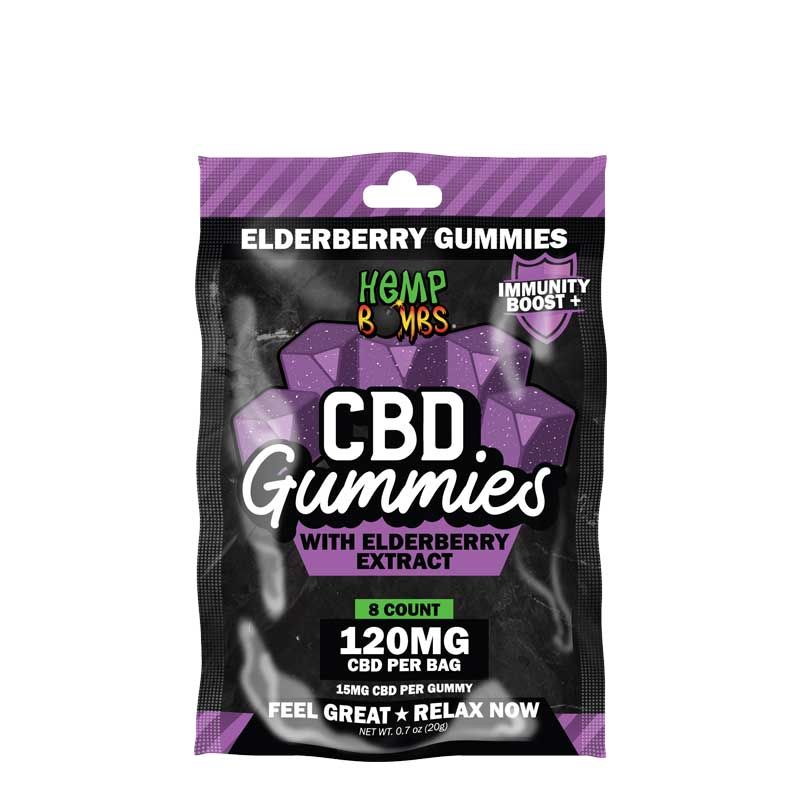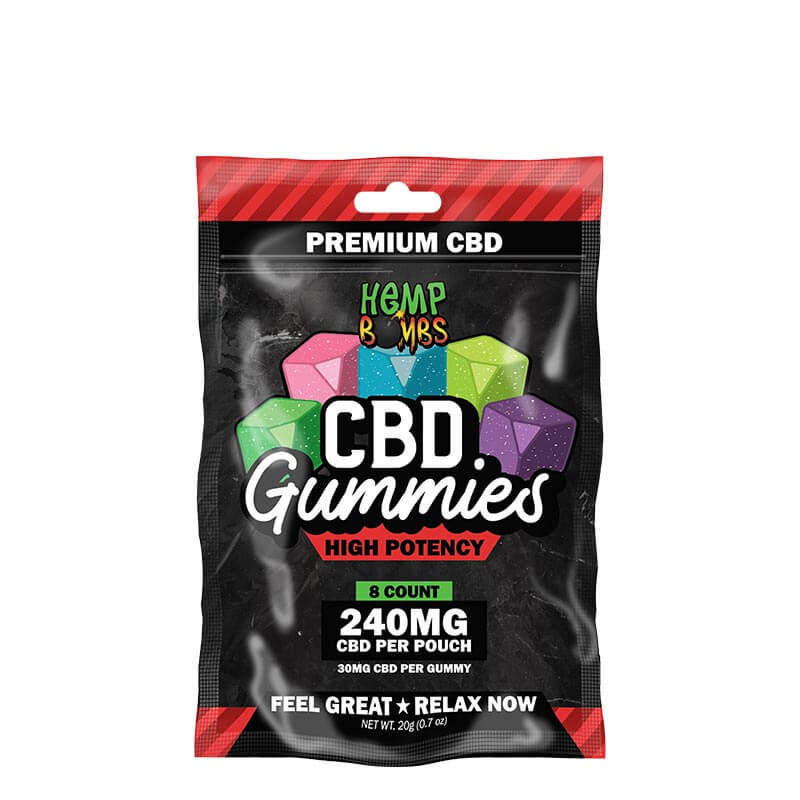CBD Hemp Gummies have quickly become the popular choice for getting a daily serving of CBD among consumers of all demographics. But as the conversation surrounding CBD manufacturing, benefits and dosing continues to evolve, you may still find yourself returning to the fundamental question, “Are CBD Gummies legal?” While it seems like a simple yes or no would suffice, the answer is far more complex and varies based on factors like sourcing, packaging and labeling, and, most importantly, location. Knowing all aspects of
CBD legality can help you make an informed decision when shopping for legal CBD edibles.
2018 Farm Bill: Hemp and CBD are Federally Legal
The Agriculture Improvement Act of 2018, also known as the 2018 Farm Bill, set the stage for the CBD industry by declaring the Hemp plant, the non-psychoactive variety of Cannabis sativa L., federally legal. Prior to this bill, Hemp was classified with marijuana as a Schedule I drug. Fortunately,
the law declared that “the term ‘marihuana’ does not include Hemp, as defined in section 297A of the Agricultural Marketing Act of 1946.”
This distinction moved the regulation of Hemp out of the hands of the Drug Enforcement Agency (DEA) and into the hands of the U.S. Department of Agriculture (USDA), the Food and Drug Administration (FDA) and the Environmental Protection Agency (EPA).
However, this new legislation did not answer the overarching question: Are
CBD Gummies legal to sell?
Instead, the new law specified rules regarding the cultivation of the Hemp plant. It called for
Hemp farmers to formulate a plan outlining processes for testing their land, checking the concentration levels of delta-9 tetrahydrocannabinol (THC) in crops, and disposing of plants that violate regulation standards. Once approved, Hemp farmers could receive a license to legally grow Hemp.
Therefore,
only Hemp produced by licensed farmers is considered legal to grow, buy and sell throughout the U.S. At Hemp Bombs, we partner with federally licensed American farmers to obtain our raw materials and create legal CBD edibles.
Are CBD Gummies Legal in Your State?
Due to the lack of FDA guidance, the legality of CBD Gummies and other hemp-derived edibles
varies by state. The requirements for packaging, labeling and testing can differ by state as well. However, standardized guidelines, such as current Good Manufacturing Practices (cGMPs) from related industries and ISO-certified methods for lab testing, offer some clarity for CBD manufacturers and distributors aiming to make their
CBD Gummies legal and compliant amid the chaos.
For example, Florida allows the sale of “CBD food products” under the newly enacted Florida Food Hemp Program. On the other hand, Louisiana pulled all CBD edibles from the shelves as of Jan. 1, 2020. Additionally, CBD edibles have been banned in several states and localities, like Maine.
It may be shocking to see Maine on this list when the state legalized marijuana for recreational use in 2016. However, many states side with the FDA’s stance on CBD food products and are waiting for clear rulings before allowing them back on the shelves. Unfortunately, there’s no forecasted timeline for when they will make CBD edibles or CBD Gummies legal again.
Product Must-Haves for Legal CBD Edibles
While we await official rules from the FDA concerning the legality of all
CBD products, we have enough information to read between the lines of warning letters, state legislation and official FDA updates to know the basics. To consider CBD Gummies legal, the potential product should follow these four guidelines:
1. Must be derived from Industrial Hemp
The defining factor of Industrial Hemp is that it contains less than 0.3 percent THC by dry weight.
Industrial Hemp is grown specifically for industrial and commercial purposes, such as textiles, food and more. Due to its naturally low THC levels, Industrial Hemp was legalized, but still remains regulated, especially for its use in
CBD products. Only products sourced from Industrial Hemp are considered federally legal at this juncture.
CBD products produced from Marijuana plants are still federally illegal in the U.S. and most states.
2. Must contain less than 0.3 percent THC (by dry weight)
Although Hemp plants naturally contain less than 0.3 percent THC, this particular aspect is crucial when crafting legal CBD gummies. Over time and with cross-pollination, Hemp plants have the potential to produce higher levels of THC, which would yield products with illegal THC concentrations.
It is vital that companies are not only conducting lab tests that confirm CBD concentrations but also that verify the THC concentration falls within legal limits.
3. The labeling must be accurate
State laws vary greatly regarding labeling requirements and many products do not meet the minimum labeling requirements including: QR codes; dosing instructions; CBD potency per dose; accurate nutrition facts and required FDA Disclaimer.
4. All marketing must be fair and truthful
At the end of 2019, the
FDA sent out 15 warning letters to companies illegally selling CBD products in ways that violated the Federal Food, Drug and Cosmetic Act (FD&C Act). This number does not begin to cover the myriad of companies contacted by the agency since 2015 for many of the same reasons.
Within these warning letters, the FDA highlighted
how the companies were marketing their products using unsubstantiated claims that CBD may treat, cure or heal ailments. This type of marketing can be harmful and discourage consumers from seeking professional help from a physician.
Hemp Bombs aims to provide balanced information on our products, including
potential side effects associated with CBD. As always, we encourage you to talk to your primary care doctor or another medical professional before adding CBD to your daily routine.
At Hemp Bombs, we strive to make our
CBD Gummies,
CBD Oil and all our other premium
CBD products legal and compliant with both federal and state regulations. We maintain cGMPs for all our processes to provide high-quality products. Each batch of raw materials and products undergoes testing to ensure they are federally legal and contain less than 0.3 percent THC. We know that CBD affects everyone differently, so we refrain from making outrageous claims about our products and allow the results to speak for themselves. Click here for more information:
What do CBD Gummies do?
You May Also Like:






